
- Information
- Call Us: 0203 006 3717 (9:30am-4:30pm)

Everything You Need To Know About RYA Yachtmaster Theory
In last weeks blog we broke down RYA Day Skipper Practical and how it fits in to your learning progression. RYA Yachtmaster Theory is the next step in that journey and on its completion you opens up RYA Coastal Skipper Practical Course as well as several other interesting optional courses you could take. This blog will tell you Everything You Need To Know About RYA Yachtmaster Theory.
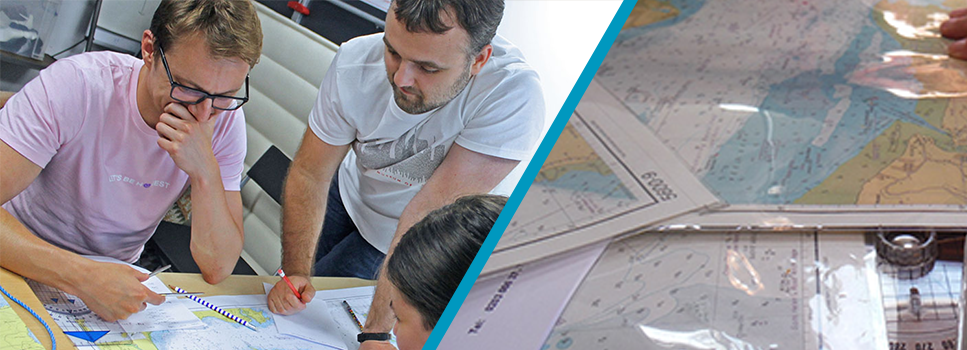
What is RYA Yachtmaster Theory?
Being a theory course its shore based in a classroom or online via zoom. It assumes you have completed RYA Day Skipper theory or possess a comparable level of knowledge as it teaches you more advanced navigation techniques. You will learn about navigating safely on coastal and offshore passages. If you plan to progress to Coastal Skipper practical, Yachtmaster Coastal or Yachtmaster Offshore then you should be taking this course.
What RYA Yachtmaster Theory teaches you?
The course in essence will teach you advanced theory of navigation and meteorology. For those with extensive sailing experience with previous navigational experience, the course builds upon those basic skills. You will be developing a comprehensive depth of knowledge and understanding of navigation theories, techniques and practices.
www.firstclasssailing.com/rya-courses/yachtmaster-theory-course
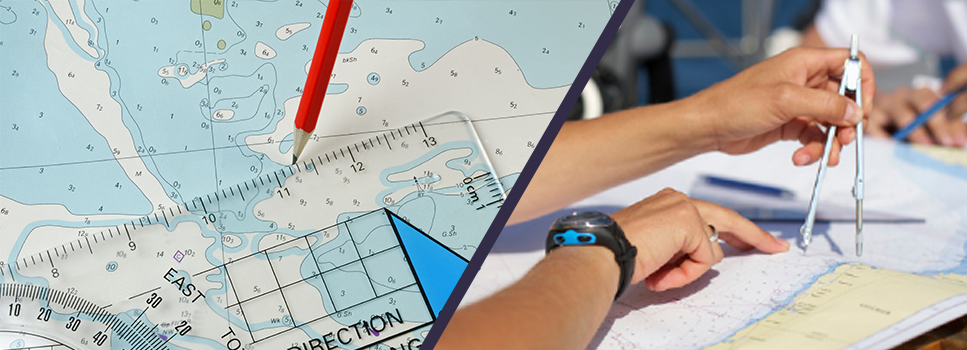
What can I expect to do?
RYA Yachtmaster Theory is an in-depth course with a wide subject field. But in short it will include position fixing, magnetic compass, tides, tidal streams, buoyage, lights, pilotage, and introduction to GPS and plotters, meteorology, collision prevention regulations, safety, navigation and passage planning among a lot more to numerous to go in-depth about in a short blog.
Where & When Can I take RYA Yachtmaster Theory?
There are three different ways you can take Yachtmaster Theory. We offer classroom based courses in our Southampton (Shamrock Quays) location and across London. The classroom based course runs for 8 weeks ( 1 evening per week) and a weekend, or over 2 and a half weekends. If you have a suitable space we can also come to your office and run the program for your colleagues. Due to the impact of COVID we adapted our shore based courses for online zoom learning. This became very popular over the pandemic and the flexibility it offers means it has maintained it popularity. Like the in person course is typically run over 8 weeks however is sometimes compressed with multiple lessons a week. Finally we have a purely online version that allows you to dip in and out as and when it suits you. Support from an instructor is only a phone call or email away
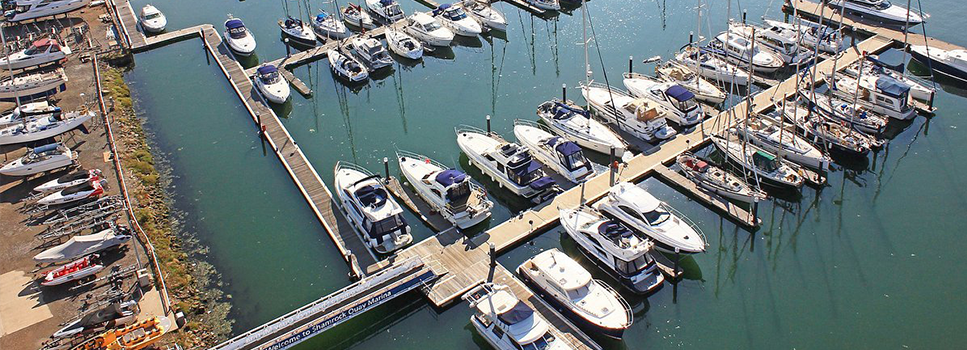
What Equipment Will I Need?
No matter if you doing RYA Yachtmaster theory in a classroom, via zoom or online, each format comes with a extensive set of materials to make use of. All students will receive a RYA work pack of charts, tide tables, port information and mock questions. A website with course slides will also be accessible after each lesson to help you refresh you memory. Those taking the Classroom or Zoom versions will also receive s Cockpit Companion.
To complete the course you will need a set of plotter and dividers. We can provide them to you for £20 to be collected at your first lesson. If your doing the Zoom or Online versions we will courier them to you. You can also opt to buy your own however they will likely be more expensive. If you have already completed RYA Day skipper theory or have the comparable experience you should already have everything you need.
Lastly If you haven’t already got a logbook you should make sure you get one. They are £7.49. The Logbook is a place to record your miles and keep your certificates. It outlines the whole RYA Cruising Scheme giving the course content for each course again if you completed prior course you should already have one of these.
What skills will I have after the course?
On competition of RYA Yachtmaster Theory you should now have the Background knowledge you need to skipper a yacht on coastal passages by day and night. You can now develop your skills further by moving up a level and taking the RYA Yachtmaster Practical , which in itself opens up several more course options. You can find more information about course options by following the link below.
www.firstclasssailing.com/first-class-sailing-rya-course-progression-plan
Want to get started?
Hopefully this blog has answered Everything You Need To Know about RYA Yachtmaster Theory. If you have any further questions or you are interested in taking RYA Yachtmaster Theory click here to see availability and dates. You can also E-mail [email protected] or call 0203 006 3717
Find out more about this course by following the link below.
www.firstclasssailing.com/rya-courses/day-skipper-theory-course
Posted by: First Class Sailing
Post a Comment Cancel reply
Name (required):
Email (required):
Your comment (required):
- All Categories
- Antigua – Portsmouth
- Atlantic Adventures
- Boat Handling Master Classes
- Channel Crossing – Channel Islands
- Coastguard Closures
- Crowdfunding
- Experiences and Challenges
- Fastnet Race
- Global Ocean Race
- Golden Vanity
- Learn to Sail
- Night Sailing
- Norway Challenger
- OnLine Learning
- Passage Planning
- Portsmouth – Gran Canaria
- Round the Island Race
- RYA Competent Crew
- RYA Courses
- RYA Day Skipper
- RYA Diesel Engine Maintenance Course
- RYA VHF Radio Course
- RYA Yachtmaster
- Sail Round Britain
- Sailing Around Britain
- Sailing Events
- Sailing Holidays
- Sailing in media
- Sailing in the West Country
- Sailing Tales
- Sailing Trips
- Skippered Charter
- Southampton Sailing Week
- Traditional Sailing
- UK Sailing Holildays
- Whole Boat Charter
- Yacht Design
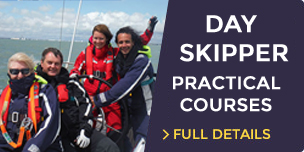
Sorry. No data so far.
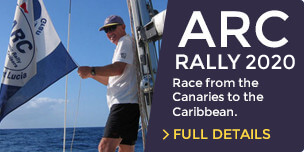
We love to hear from our customers and we are happy to call/email you to discuss your sailing needs.

Chieftain Training
RYA & STCW Courses – Sail, Power, Super-Yacht & Workboat
Route to RYA Yachtmaster (Power or Sail)
The Yachtmaster Certificate of Competence Exam can be taken in a powered or sail craft (i.e. there are two separate disciplines). Much of the route (the shorebased courses) is identical for both disciplines.
There are actually three levels of Yachtmaster ( Coastal, Offshore and Ocean). When people refer to “Yachtmaster” they are generally referring to Yachtmaster Offshore. This article focuses on Coastal and Offshore, our separate article, “ What is an Ocean Yachtmaster ” deals with the higher level of the three.

The route to Yachtmaster Coastal and Offshore is similar, candidates for both will have followed a similar pathway, but the offshore candidate will have logged considerably more experience prior to exam and will be pushed harder during the exam. Visit our helpful RYA Advanced and Yachtmaster Qualifying mileage page for more information.
The route to Yachtmaster has several stepping stones, most students work through Day Skipper Shorebased and Day Skipper Practical and then Coastal Skipper , however if you already have relevant experience and skills you can consider skipping these courses.
Before considering embarking on a Yachtmaster practical week , you must arm yourself with;
- Qualifying mileage (power or sail as appropriate)
- RYA SRC (1 day) or
- Higher level GMDSS Radio Certificate of Competence (3-8 day)
- RYA First Aid (1 day) or
- STCW Elementary First Aid (1 day) or
- STCW Medical First Aid (4 day) or
- Seafish First Aid
- RYA Coastal Skipper & Yachtmaster Offshore Shorebased (6 days or online)
- Knowledge level to RYA Radar (1 day)
- Knowledge level to RYA Diesel (1 day)
You are also strongly advised to take the RYA Sea Survival or STW PST Course (1 day), which is required if you intend to operate as a commercial Yachtmaster (most candidates take the exam for commercial reasons and add the RYA Commercial Endorsement however some are leisure boaters and do it for themselves).

Our Yachtmaster practical (preparation and exam) week is 5 days, it takes place on board our motorboat and results in the Yachtmaster Coastal or Offshore (Power) Certificates of Competence . If you prefer to take the sail exam we can put you in touch with a sail school once you have all of the above shorebased courses. During the prep week our Instructor will take you through many of the exercises the examiner is likely to throw at you on the final day. We operate the prep week with a maximum of 3 students.

Share this:

Day Skipper to Yachtmaster
Congratulations on your Day Skipper success! You might have used your new ICC qualification on a flotilla holiday or bare-boat charter in the Med. but if you want to charter or cruise your own yacht here in the UK you'll need to know more about navigation. Developing your sailing skills will also be a wise move since you'll be out there on your own much more. Knowing more about sailing in adverse weather conditions is an important part of becoming a Yachtmaster. Wouldn't it be great to spend the night tucked up in a secret anchorage away from the crowds? That's what these more advanced courses will teach you.
The following pathway is a guide to using the RYA courses to take your sailing skills beyond the basic level of a Day Skipper. Again the steps to Yachtmaster can be a bit confusing so we'll try and clarify things for you.
- RYA 2-day Improver Keelboat Courses 1. Level 3 - Better Sailing (a flexible course which can be repeated to suit your individual needs) 2. Seamanship Skills (advanced sailing course) 3. Day Sailing (advanced course)
- Own Boat Tuition - Sailing Tips & Personalised Coaching What would you like to get better at? Berthing? Sail trim? Keeping the crew happy? Book John, our friendly award-winning Yachtmaster Instructor & Examiner for some private tuition on your own boat. The RYA courses can't cover everything there is to know about sailing and some tailor-made tuition can be very helpful.
- Become a Yachtmaster 1. Coastal Skipper / Yachtmaster Offshore - Navigation course focusing on sailing longer passages. 2. Coastal Skipper practical course - 5-days on a cruising yacht - course completion certificate awarded 3. Yachtmaster Coastal Exam - 6 to 10 hour practical exam 4. Yachtmaster Offshore Exam - 8 to 12 hour practical exam 5. Yachtmaster Ocean - Celestial navigation course 6. Yachtmaster Ocean Exam - 600 mile passage navigating using a sextant plus oral exam afterwards
- 1-day Supporting Courses 1. First Aid - for all boaters (needs updating every 3 years) 2. Diesel Engine Maintenance - beginners introduction to looking after a boat's engine 3. Radar - use it for navigation too 4. VHF Radio - international operators licence
Check our website for available courses. John is a Yachtmaster Instructor in all the cruising courses but works for other training centres. The cruising courses ie Competent Crew, Day Skipper practical, Coastal Skipper practical and Yachtmaster exams are not possible in Morecambe Bay or the North West coast.
Yachting Monthly
- Digital edition

Tips and hints for passing your Yachtmaster theory
- Katy Stickland
- July 20, 2021
Racing turned cruising sailors Liz Rushall and her husband Mark go back to school to brush up on their Yachtmaster theory

Although accomplished sailors, Liz and Mark found their rusty knowledge was hampering their cruising enjoyment. The Yachtmaster theory course revealed a number of areas in need of a refresher. Credit: David Harding
Liz Rushall shares tips and hints for passing your Yachtmaster theory course
‘Why on earth are you guys doing your Yachtmaster ?’ was the question our friends repeatedly asked. ‘Surely, you know all that stuff?’
We’ve both sailed since childhood, competitively racing dinghies, then keelboats. Sailing is our work and life.

Liz Rushall has won national dinghy and keelboat titles, but currently cruises a 28ft classic Honeybee called Ragdoll
Mark is a British Sailing Team coach, we’ve both won championships together and with others, and raced keelboats offshore.
In between times, since 2000, we’ve cruised Ragdoll our 28ft classic Honeybee, from Emsworth, having slow adventures around Brittany, Normandy, and the West Country.
Generally, we’ve arrived on the day we had planned, if not quite always at our estimated time.
Although I did my Yachtmaster theory some 20 years ago, it’s just like I have a Maths O-Level. It’s still a mystery to me.
Sitting the course at night-school, during an intensely busy job, with a bunch of powerboaters talking jargon knowingly, it was as if I was reliving the horror of maths at school.
Needless to say, as with my maths, I battled through the exam and unfortunately not much of it stuck.
Meanwhile, Mark learned his navigation on the hoof, cruising on friends’ boats during his student days and he is self-taught.
Good at all things involving science and numbers, he was always a bit dismissive of things like compass deviation.
We had a little hand-held GPS, a Walker trailing log, and more recently a very small detachable Garmin chartplotter and Simrad AIS. It all seemed to work – we were fine.
What could possibly go wrong?
You never stop learning
The real answer to the question ‘why do our Yachtmaster ’ was a wake-up call that came last summer.
We’d had a hectic few months, working late and trying to fit in our summer cruise around Mark’s Olympic coaching commitments.
We were both tired and needed a break.
Mark plotted our Channel crossing.
Normally I try to get involved and have a crack at the passage plan too, but it takes me ages.

Making sense of passage planning, including tidal heights and gates, is much easier once you’ve had a refresher. Credit: Liz Rushall
I helped a bit with the tidal streams (which I thought I was good at) and had a quick, over-the-shoulder look.
We decided to head for Cherbourg, to have options.
We dismissed the idea of heading straight to Saint-Vaast, as we’d anticipated a four-hour wait for the lock gates – tedious after a long crossing.
We left Chichester Harbour early, although I wanted to go even earlier.
As soon as we had popped out of the harbour, the wind clearly was not as forecast. It was more WSW than west, so not the reach we had hoped for.
Continues below…

Tips and hints for passing your Yachtmaster practical
Having brushed up on their theory, racing turned cruising sailors Liz Rushall and her husband Mark now put it into…
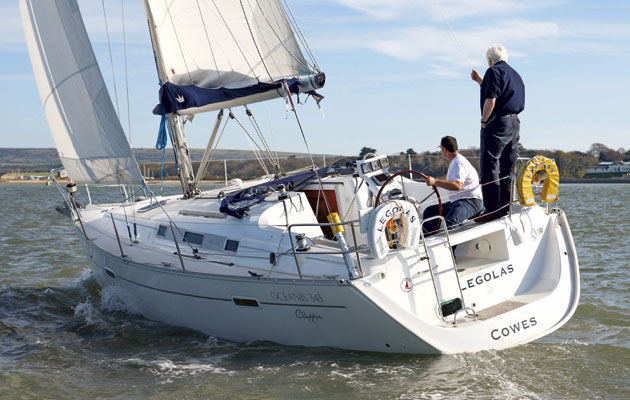
How to pass your Yachtmaster exam
The global standard of sailing qualifications is achievable for any experienced, competent skipper. Tom Cunliffe explains how to pass your…

12 expert skills to take you beyond Yachtmaster
Rupert Holmes outlines the skills that mark out the good sailors from the great ones, with experience and reflective learning…
We were keen to get to France, however, so we pressed on.
It was a big spring tide, so we expected to get swept hard eastwards and then back westwards.
We reefed early, anticipating the wind against tide effect as we got towards France.
But it was a horrible sea. Our little boat was sailing beautifully but struggled to keep to our estimated speed.
We were consistently too far east of our course, even after the tide had turned, and the tide didn’t push us as hard west to Cherbourg as had been expected.
Still behind schedule, the water didn’t flatten out when the tide turned east again.

How to calculate position, estimate time of arrival and course to steer is all easily forgotten in a digital age. Knowing how to extract this information from your chartplotter is also crucial
Now very tired from hand steering, less than two hours from Cherbourg we had to concede that we simply could not punch upwind, with or without the engine.
The whole day had been a domino effect of one little thing after another.
So, as the sun faded, a quick change of plan.
We altered course for St Vaast, rocketing down on the tide, arriving just as the lock gates opened at 2300.
In the end, it was a good result, landing in our favourite spot, although it had been a very long day on a little boat with no self-steering.
After two days’ sleeping, having a sailing coach on board and racing in our blood meant, of course, a thorough debrief.
Naturally, over some lovely seafood and French wine.
We realised that our brains were not getting younger, and clearly there had been some ‘gaps’ in our navigational planning.
For a long time, I’ve felt aware that I didn’t have a complete handle on chartwork, despite owning a certificate that says I do.
The decision was made. Let’s have a crack at our RYA Yachtmaster and find out what we do and don’t know.
A course in ‘Johart’s Window’
Stage one of our plan was enrolling on an Intensive RYA Yachtmaster Theory course with the Emsworth School of Navigation – six days completed over two weekends.

Using dividers to transfer a position line from a scale is easier on a small boat than lining up a plotter or parallel rules. Credit: David Harding
Compared to my memories of scary night-school, the experience was a refreshing change.
Karen Dorontic, the principal, turned out to be an amazing teacher, with astounding levels of patience and a gift for not making you feel stupid, despite most of us coming up with some bizarre calculations and answers.
Her empathy with our learning process, the pitfalls and the mistakes we would make as we progressed through the topics and papers, was clearly based on her own experiences.
We had an interesting, mixed group on the course; a couple refurbishing their yacht to cruise around the world, two people who take people sailing on club-owned yachts, a Solent based cruiser, and my brothers.
One who, like me, did his Yachtmaster theory exam many years ago, the other a confirmed dinghy sailor now doing a bit more yacht racing.
Straight into the first session, and many of us were picking up some great tips.
Frequently things that sounded obvious, although only once you had been told.
For us, it was time-saving things, such as using the dividers to transfer positions from the side of the chart rather than struggling with parallel rules, and unlocking the delights of a Portland plotter.
Both were far more useful for our tiny navigation table. Then, there were the really useful ways of remembering things.
Who knew the cones on cardinal marks point to the black section? Easy.
Bizarrely, one of the most entertaining sessions was learning the Colregs (collision regulations).
We were in hoots visualising all those bells and gongs going off in poor visibility.
Yet once again, Karen gave us really helpful tips for working out lights, especially for towing vessels, which initially felt like a sea of colour we’d never remember.
The intensive nature of the course means there is a vast amount of information to process but without the luxury of a few days to absorb and reread what you are learning.
Almost inevitably, that meant some of us ‘hitting the wall’.
By day two of plotting estimated positions and courses to steer, I could no longer figure out Variation and Deviation.
The phrase ‘Error East Compass Least’ rapidly became another maths maze. Plus or minus?
The more I tried to think about it, the more it went wrong.
One candidate put his dividers down saying: ‘I’ve completely forgotten what it is I’m trying to achieve’.
I began to wonder how we’d ever got our boats anywhere around the Solent, let alone to St Malo, Chausey, and Tréguier.
Homework humiliations
With a lot of exercises to practise before the second weekend, it was hard to cram our homework into a busy fortnight.
Somehow we did, although mealtime conversation got down to the level of ‘what do two red lights mean?’ Riveting stuff!
The family WhatsApp was busy that week with shrieks of frustration as we all made chartwork errors.
Back in the classroom, we all compared notes. Everyone had struggled with their homework.
Mark didn’t get a single question right first time.

Liz found it useful to identify areas of weakness ahead of her Yachtmaster Theory course. Credit: David Harding
Number blindness set in as we all plotted the wrong information, dates and data and tried to use the tidal height tables to calculate tidal stream rates. We’d done it all.
One man owned up to plotting the date as a position on his chart.
At least we were all suffering in the same boat.
Undoubtedly, it was a painful process to go through, as we all fell into the pitfalls and traps deliberately set in the exercise questions.
However, it was true that practice makes perfect.
Through comparing our random attempts with the answers, we were all learning from our errors.
The fog is clearing
With homework horrors behind us, our practice paid off as we went through our exam papers.
Everyone passing the Colregs paper was a confidence boost. Bang the gong!
While we waited to hear our results, the bemused conversation went along the lines of, ‘Were those yellow and red lights a Hovercraft that was fishing?
Or an air-cushioned, displacement fishing vessel?
Details of the RYA Yachtmaster Theory course
Officially speaking, the RYA Yachtmaster Theory course builds on that which is taught in the shore-based Day skipper course.
However, for most people who have sailed regularly, then jumping straight to Yachtmaster theory is unlikely to be a major problem.
The course covers advanced navigation techniques including: position fixing; course shaping and plotting; tidal knowledge including secondary port calculations; navigation in restricted visibility; Admiralty publications and electronic position-finding equipment.
Much of this will be familiar to even the most casual cruiser, but as Liz discovered, some of the specifics might well need a bit of study.
The meteorology tuition includes the taking and interpretation of forecasts, plotting of weather systems as well as weather prediction.
Further courses
Many people who jump straight into Yachtmaster Theory may find that it turns up a weakness or gap in their knowledge.
It can often be helpful to identify areas of weakness and consider a training course that might help raise your level ahead of a Yachtmaster practical exam.
Several schools offer courses on many of the subjects in a Yachtmaster exam and they can help you to improve your knowledge.
On the other hand, it might just be an area you devote more time to in the lead up to Yachtmaster Practical.
Know your COLREGS
The one area where there are no shortcuts are Colregs; you just need to know your stuff – and finding the time to learn isn’t difficult.
So far as the MCA is concerned, this is the crunch.
Examiners are encouraged to demand high standards in this subject, and there’s no reason for a candidate, knowing full well they are going to be grilled extensively on this, not to have the regulations solidly in their mind.
The best way to be exam-proof is to invest in A Seaman’s Guide to the Rule of the Road (Morgans Technical Books Limited (£12.50), available for modest money online or in any chandlery.
Place it prominently in the heads some months before the exam and devote five minutes of each day to digesting its contents.
The book makes it easy and should leave you with no excuse for not having a thorough working knowledge.
Aside from the certificate, we both got a lot out of the course. Mark felt that it reminded him what he did know and reinforced what he didn’t.

Liz found she had forgotten some useful shortcuts during her Yachtmaster Theory course and put these into practice during her Yachtmaster Practical assessment. Credit: David Harding
Learning the processes and the ways to remember them, was so helpful.
For me, cracking the tidal stream rates was a revelation, and fears of secondary ports and tidal height calculations are mostly gone.
It will definitely help us explore places we never felt confident to visit because we have a long keel.
Karen’s many wise tips such as not trusting the electronics unquestioningly, and rapid plotting techniques will be invaluable.
Pilotage plans for new ports will now be a joy rather than a scrabble around through the pilot books.
We love our little boat, we sail her well, yet she will never be anything like the quickest boat on the water.
She needs all the help we can give her, which includes accurate navigation to arrive on time.
Having returned to the Yachtmaster theory I now feel that my confidence is up.
Mark and I now can’t wait for our next big voyage, to see what we’ve really learned.
Now there’s the small matter of our practical exams on the horizon.
5 key points to take away from our Yachtmaster Theory course
- Quick Plotting Techniques: Karen’s quick plotting technique really helps if, like us, you have a very small chart table. Simply plot your latitude using your Portland plotter or ruler. Then measure off your longitude along the top line of the chart from the nearest major longitude line eg 002°. Move the dividers down to in-line with your latitude plot and draw an arc on your first line
- Deviation and Variation: In the end, I solved this by learning to literally translate ‘error east/compass least’ and ‘error west/compass best’ into plain English! In other words: Compass error West – compass will be bigger than True; Compass error East –compass will be less than True. Learning how to use a pencil mark on the error scale on the Portland plotter to avoid the mental arithmetic entirely was another gem.
- Extrapolating tidal streams : One particular ‘lightbulb moment’ was calculating tidal streams. We’d only ever interpolated the tidal streams, estimating the rate between the mean spring and neap rates shown in the tidal atlas. The exercises highlighted that a big spring tide will be higher than the mean rate, and extrapolating this accurately makes a big impact on your course to steer.
- Remembering lights: Learning the lights felt really complex, but Karen taught us to look for the patterns. Remember a clock face for the number of flashes of the N, E, S and West cardinals (E is three flashes, South six, West nine and North continuous) is a great tip. For remembering the lights for towing vessels, adding an extra masthead light to represent the vessel it is towing, plus another for boat length over 50m, and another for tow length.
- Templates for secondary port and tidal stream calcs: Rather than working it out from scratch each time, Karen encouraged us to develop our own, or use standard templates for calculating tidal information. It helps reduce errors, speeding up the planning process and saving brain cells for other tasks.
Key information on the Yachtmaster practical and theory courses
Why yachtmaster.
Although a Yachtmaster qualification is required for anyone planning to become a professional, thanks to the continuing efforts of the RYA, Brits who sail for leisure still don’t have to carry any proof of competence in home waters.
The certificate certainly remains the logical target of many a self-motivated sailor, though.
It also represents the icing on the cake for those looking for the reassurance of an external assessment.
Theory and Practical
Yachtmaster training can take place on a boat or in a classroom.
A shore-based course, either at desks in a school or via the popular Internet distance learning programmes, ends with a theory exam.
Success in this will help a student in later qualification upgrades, but it is not officially recognised.
The only certificates accepted by the authorities are those issued after an at-sea examination. To become a fully-fledged Yachtmaster, this practical test is the one that counts.
Coastal or offshore
In recent years, the old Coastal Skipper has been superseded by the new Yachtmaster Coastal certificate.
The qualifying mileage for this MCA-recognised qualification is 800 miles, with passage and night-hour requirements being regarded as fairly relaxed in comparison with Yachtmaster Offshore, which keeps its 2,500-mile entry level.
Either will serve as a proper Yachtmaster qualification and can be described as such.
Only the often-dropped suffix distinguishes the two.
Apply for ‘coastal’ and the examiner, recognising that you have less sea-time, will be more inclined to cut you a bit of slack.
The RYA has noted that most candidates are really only making ‘coastal-status’ passages.
In real terms this includes an annual trip across the Irish Sea, the North Sea or the Channel in a calculated weather window.
- Account icon Log in
- Basic Safety Training
- Refresher (Fire & PST)
- Elementary First Aid
- Fire Prevention & Fire-fighting
- Personal Survival Techniques
- Advanced Fire Fighting
- Advanced Fire Fighting Refresher
- Proficiency in Security Awareness
- Personal Safety & Social Responsibility
- Crowd Management / Crisis Management and Human Behaviour
- Powerboat Level 2
- PWC/Jet Ski License
- PWI/Jet Ski Instructor
- PWC + PWI Pack
- Pack PB2 & PWC
- Day Skipper
- Shorebased Yachtmaster Theory
- Yachtmaster Practical Preparation & Offshore Exam
- Yachtmaster Offshore Package
- Full Deckhand Pack
- Full Interior Pack
- Basic Deckhand Pack
- Basic Interior Pack
- Full Tender and Jet Ski Pack
- Tender Pack
- Jetski Pack
- Yacht Deckhand Training
- Yacht Steward/ess Training
- Basic Food & Beverage Services
- Basic Housekeeping & Laundry Services
- Basic Wine, Bartending & Mixology
- Food Safety Level 2
- ⚡Lithium-ion Battery Safety Awareness on Superyachts
- VHF Short Range Certificate
- RYA Professional Practice & Responsibilities
- RYA Essential Navigation and Seamanship
- RYA Online Coastal Skipper/Yachtmaster Theory
- RYA Online Day Skipper Theory
- STCW PDSD for Superyachts
- STCW PDSD for Cruise Ships
- STCW Proficiency as Ship Security Officer on Superyachts
- Useful Information
- Steward/ess
Yachtmaster Offshore: When, Why, and How
In a seafarer’s career, there comes the time when Yachtmaster ticket becomes either a necessity, or the next logical step in professional development. No matter what the reason for the course is, Yachtmaster Offshore requires a thorough preparation and planning as well as some prior knowledge and experience.
- When am I ready to take the course?
The candidate’s eligibility for Yachtmaster Offshore program is defined by a number of requirements. First and foremost, the logged sea time must show a minimum of 2500 nautical miles, about half of which should be in tidal waters. There is a huge debate as to what tidal waters are, and the RYA leaves it to the Yachtmaster candidate to decide whether the passage they undertook happened in a tidal area. The definition offered by the RYA is as follows:
An area is deemed tidal if published stream, current or tidal range data is available, the influence of which is significant enough to require the effects to be taken into account to plan and execute a safe and efficient passage .
But even if the decision to call experience tidal is the candidate’s, the RYA wisely warns that the final judgement will be made by the examiner and recommends to list only those miles that can be backed up with evidence. The qualifying sea time should be gained on motor vessels if the candidate applies for Yachtmaster Offshore Motor license. Sail miles do not count.
The RYA also sets a requirement as to the number of qualifying passages. As defined by the Association, ‘a passage is a non-stop voyage from a departure port / safe haven to a destination port / safe haven ’. For the Yachtmaster Offshore , there must be a minimum of 5 passages over 60 nm each; 2 of those passages should be overnight and 2 when the candidate acted as a skipper. The skipper, as understood by the RYA , is a person nominated and responsible for the planning and execution of a passage including vessel and watch management . It’s important that throughout the 60-mile passage there occurs no change of skippers; otherwise, the passage cannot be deemed as qualifying.
Proper understanding of the skipper’s role is vital for ticking the box of another requirement – 5 days on board acting as a skipper. A day in this case is a period of 8 consecutive hours, and the majority of them should be at sea . In every 24 hours, Yachtmaster candidate can have only one qualifying day onboard.
Last but not least, the RYA’s Yachtmaster Offshore exam pre-requisites put some restrictions as to the tonnage and length: days on board and miles should be gained on vessels up to 500 gt and less than 24 meters LOA.
- When is the best time to take the RYA Yachtmaster Offshore course?
The full program – RYA Yachtmaster Offshore theory and RYA Yachtmaster Practical – takes 10 days to complete; the exam is usually scheduled right after, and candidates need to allow 2 days for it. With the sea, winds, and weather being unpredictable, to the candidates coming from abroad we advise to add an extra day before taking flights back home. Thus, the course is quite a commitment, and most seafarers take it during low Med season. Our Yachtmaster Offshore course is scheduled every month from December throughout April to give options to potential candidates.
- Why take the RYA Yachtmaster Offshore?
Yachtmaster is not for beginners. Commercially endorsed Yachtmaster Offshore Certificate of Competence entitles its holder to master a yacht of up to 200 gt, and that is a big responsibility. That said, one of the reasons to get Yachtmaster is to advance the qualifications from entry to higher level including MCA Officer of the Watch (OOW) or Chief Mate, for which Yachtmaster Offshore CoC is among the required documents. Yachtmaster Offshore Shore-based (theory) certificate is another pre-requisite to apply for the OOW, and it has to be sent along with STCW and other records as a part of the Notice of Eligibility.
In a scheme of RYA training , Yachtmaster Offshore is preceded by RYA Day Skipper and Coastal Skipper, which allow to navigate 20 and 60 nautical miles offshore accordingly. With Yachtmaster Offshore qualifications, it is possible to skipper a cruising yacht up to 150 miles from harbour, so recreational boaters can have larger areas to explore and longer distances to cover.
- How to apply for Yachtmaster Offshore Program?
If you believe you are ready and meet the pre-requisites mentioned above and outlined on our website , your first step is to get in touch with us by email, phone, or through contact form . Once we receive your enquiry, we will email to you Sea Time Summary and Self-Evaluation forms to fill out, which we will then forward to our instructor to confirm your eligibility. If you are eligible for the course, we will proceed with course booking and securing your place on the training.
Some important things to remember: the candidates for the training should hold a valid Elementary First Aid certificate . For the STCW EFA , it should be issued within the last 5 years, for the RYA First Aid - within the last 3 years. VHF Marine Radio certificate can be offered as a part of Yachtmaster Offshore package , but if you already hold the certificate, we can offer a 100 euros reduction.
Our next Yachtmaster Offshore session starts on the 6 th of December. Click here for more dates.
More questions about Yachtmaster? Let us know!
Leave a comment
Comments must be approved before appearing
* Required fields
Subscribe to our newsletter & be the first to know of training dates & offers
Checkmark icon Added to your cart:

- All Courses
- RYA Start Yachting
- RYA Competent Crew
- Novice to RYA Day Skipper
- RYA Day Skipper Fastrack
- RYA Day Skipper Practical
- RYA ICC Flotilla Course
- Sailing Refresher
- RYA Coastal Skipper Combined
- RYA Coastal Skipper Practical
- RYA Yachtmaster Coastal
- RYA Yachtmaster Offshore
- All Adventures
- Mile Builders
- Gibraltar to Africa Weekend Adventure
- Round the Island Race
- KMT Sailing : Cultural adventures under sail
- All Yachtmaster Courses
- Professional Yachtmaster Fastrack program
- RYA Yachtmaster Theory
- Extended Yachtmaster Preparation
- Passage Making and YM Preparation Course
- Online Courses
- RYA Online Theory Course
- RYA Online VHF / SRC
- RYA PPR Online Course
- Yacht Charter Gibraltar
- Full Day Charter and Half Day Charters
- Frequently Asked Questions
- Joining Instructions
- Special Offers
- Gift Vouchers
- Pre Course Experience
- How to Get Here
- Why Choose Jolly Parrot
- Jolly Reviews
- Where We Sail
- Our Jolly Fleet
- Helping You Choose
- Where are the Parrots?
- Gibraltar Weather
- Sailing Glossary
- Jolly Links
- Terms & Conditions
- Photo Gallery
What's the difference between RYA Yachtmaster Offshore and RYA Yachtmaster Coastal?
04 March 2016
The RYA Yachtmaster qualification has long been recognised by many as the premium sailing qualification for the experienced leisure sailor. In recent times, the Yachtmaster qualification has been further defined and is now split into three subsections, namely Yachtmaster Coastal, Yachtmaster Offshore and Yachtmaster Ocean. Unlike the RYA Day Skipper qualification, all three qualifications are gained through external examination.
The holder of a Yachtmaster Coastal qualification should be competent to skipper a yacht of up to 24 metres LOA in waters up to 20 miles from a safe haven. A Yachtmaster Offshore is qualified to skipper a vessel of the same size up to 150 miles from a safe haven. Yachtmaster Ocean extends the Yachtmaster Offshore qualification and qualifies the holder to skipper a vessel of the same size and up to 200gt anywhere in the World.
As one would expect, each examination requires that the candidate have a minimum level of experience prior to the examination. Prior to the Yachtmaster Coastal examination , a candidate must have a minimum of 30 days at sea, with 2 days as skipper and at least 800 miles logged, including 12 night hours. If you hold the Coastal Skipper course certificate already then this is reduced to 20 days at sea with 2 days as skipper, 400 miles logged and 12 night hours. Half the qualifying sea time must be conducted in tidal waters.
To qualify to undertake the Yachtmaster Offshore examination , you must have a minimum of 50 days at sea, 2,500 miles logged, including at least 5 passages over 60 miles measured along the rhumb line from the port of departure to the destination, acting as skipper for at least two of these passages and including two which have involved overnight passages. The candidate must have 5 days experience as skipper. At least half this mileage and passages must be in tidal waters. All qualifying seatime must be within 10 years prior to the exam.
In both instances you will also need to hold a GMDSS short range radio certificate.
For advice on what examination you should be studying for, call our senior instructor and RYA Yachtmaster Instructor for a chat on [email protected] or call 07925 784407.
Related articles:
- What is a Yachtmaster ‘Prep Week’?
- How do I prepare for a Yachtmaster Exam?
- Why you should take your RYA Yachtmaster Exam in the Mediterranean
Other Blog Articles
Preparing for coastal skipper & yachtmaster shorebased theory.
27 May 2022
Which First Aid certificates are valid for Yachtmaster qualification?
02 February 2021
The benefits of own boat tuition
26 January 2021
Ideal for candidates for the Coastal Skipper practical course & Yachmaster Offshore exam. Some revision of the Day Skipper shorebased course plus more advanced skills in offshore & coastal navigation by day & night, pilotage & meteorology.
Knowledge to the level of Day Skipper Shorebased.
40 hours plus exam time
Position fixing, course shaping and plotting, tidal knowledge, use of almanacs and admiralty publications, electronic position finding equipment, taking and interpreting forecasts, plotting weather systems, weather predictions using a barometer.
Background knowledge to skipper a yacht on coastal passages by day & night.
This is a shorebased course that can be taken in the classroom, online or by distance learning.

RYA Navigation Handbook 2nd Edition
£19.99
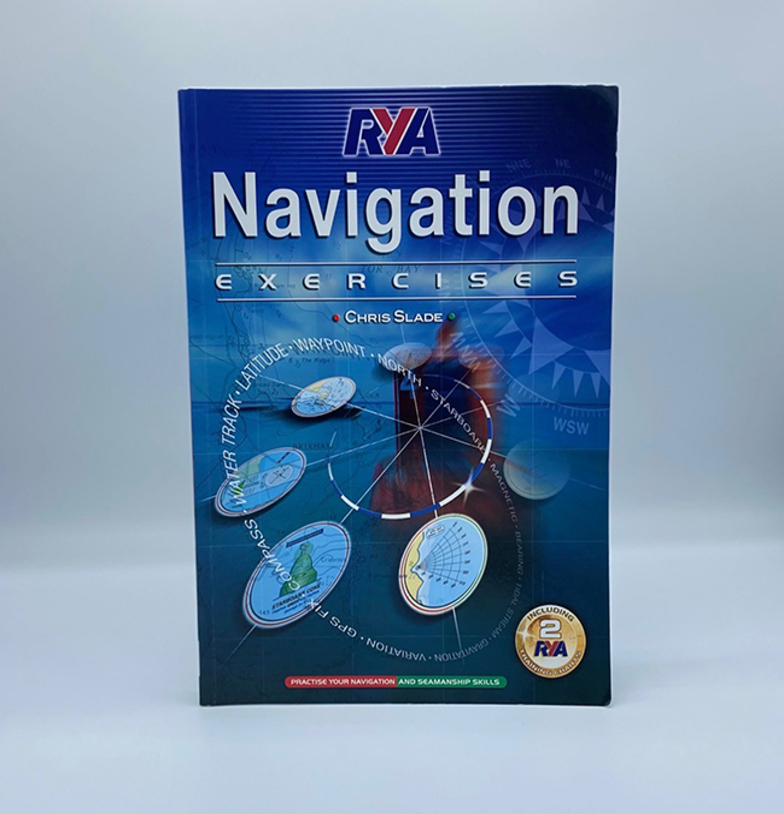
RYA Navigation Exercises
£22.99
RYA Coastal Skipper and Yachtmaster ™ Offshore Theory (Online)
- This course looks to refine the techniques learnt in your RYA Day Skipper Theory course
- International Maritime Law
- Passage Planning
- Meteorology
- Environmental care
RYA Coastal Skipper/Yachtmaster™ theory is a more advanced course that builds on the knowledge gained at the RYA Day Skipper Theory level. Its aim is to take your theory knowledge to the standard required for the Yachtmaster™ Coastal and Yachtmaster™ Offshore practical course.
This course is open to anyone who has already completed Day Skipper Theory, and ideally has some practical boating experience. You should be comfortable applying concepts such as tidal heights and streams and interpreting weather information. You will be familiar with pilotage and passage planning. You will feel at ease with the practical and thorough application of the IRPCS. You will understand how to fix position using a variety of methods. Your knowledge of safety systems and practices will be substantial.
Your full training pack contents include:
- Two RYA practice charts
- The RYA Coastal / Yachtmaster course notes
- The RYA Coastal / Yachtmaster exercises
- The RYA Training Almanac
Please note: Your online course is provided by Navathome. Booking conditions are not the same as for courses delivered by Andrew Simpson Yachting.
Notes on shipping of training materials.
All training materials for the online courses are shipped to you the buyer. Please be aware of the Navathome policy relating to shipping. This forms part of their terms and conditions.
- Navathome is unable to ship to addresses which contain PO Box Numbers. A physical address will be required.
- Buyers must provide a valid contact telephone number at the time of booking
- Packs being shipped to Russia must be delivered to a business address.
- All packs must be signed for, so the buyer must ensure that there will be somebody available to accept the package
- Navathome will not accept responsibility for packs sent to marinas, or c/o addresses. If the pack goes missing after it has been signed for, the buyer will be liable for the cost of the replacement pack.
Course Outcomes
- With this qualification combined with additional practical experience, you should be equipped with the knowledge required to consider the RYA Yachtmaster ™ Coastal or Yachtmaster ™ Offshore examination.

To book this course please call or email our friendly team who will set you up with everything you need to get learning. Phone: +44 (0)2392 522777 Email: [email protected]

Register today and get £50 off
Enter voucher code HOME STUDY in the booking form
Coastal / Offshore
RYA Yachtmaster
Online Theory Course
A challenging course which stretches you but backed up with excellent coaching and instructor support.

Advanced training for more experienced skippers to navigate safely on coastal and offshore passages
The RYA Yachtmaster online theory course takes your theory knowledge to the standard required for the Yachtmaster Coastal and Yachtmaster Offshore practical exams.
This course advances your skills as a skipper of a yacht or motor boat, with an emphasis on navigation and passage planning for more complex coastal or offshore passages by day and night
Includes some time for the revision of Day Skipper subjects then moves on to cover a greater depth of knowledge and more advanced skills in navigation, pilotage & meteorology.
Successfully gaining your RYA Yachtmaster theory certificate will enable you to confidently work towards your Yachtmaster Coastal or Yachtmaster Offshore practical qualification.
- Assumed knowledge To Day Skipper theory level.
- Minimum duration A minimum of 40 hours of course study time is specified by the RYA, plus time for exercises and exams.
- Ability after course Theory knowledge to skipper a vessel on coastal and offshore passages by day and night.
Simply click below to try a free lesson.
Pilotage for RYA Yachtmaster Offshore
- Charts & Other Publications
- Definition of Position, Time, Speed & Distance
- The Compass (including allowance for deviation and swinging the compass)
- Tidal Theory
- Tidal Heights (including secondary ports)
- Tidal Streams (including interpolation of drift)
- Estimated Position
- Course to Steer
- Visual Aids to Navigation
- Electronic Aids to Navigation
- Passage Planning
- Meteorology (including interpreting surface pressure charts)
- The Collision Regulations
- Safety & Protection of The Environment
Unlimited support from our dedicated RYA Instructors - 365 days a year via email, phone or Skype/Zoom.
14-day unconditional money-back guarantee.
17 fully-narrated online lessons including animations, videos and realistic 3D graphics.
Embedded quizzes with instant feedback in each lesson.
14 self-assessment exercises with fully worked answers.
Over 50 downloadable or linked resources.
Videos covering: updating paper charts, engine checks, dismasting, jury rig, flood control, firefighting, gas explosions, capsize, lifejacket checks, how to put on a lifejacket and what happens when it inflates, man-overboard recovery, launching and boarding a liferaft.
Free Radar course.
RYA Student Pack (including 2 training charts, training almanac & course handbook).
Mock exams to prepare you for the real thing and give you the confidence to pass.
3 final online exams with detailed instructor feedback and free repeat attempts if requried.
RYA Yachtmaster Shorebased Theory Course Completion Certificate.
12 months access to study with instructor support and exams - you can extend this if you want.
Lifetime access to training materials once you’ve completed the course.
Optional Extras
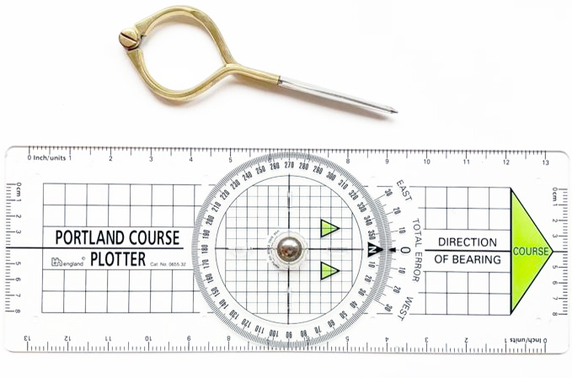
Plotter and divider You’ll need a course plotter and chart-dividers to complete the chartwork exercises - if you don’t already have these you can purchase a top quality set from us for £28 when you place your order.

Delivery UK delivery is free. European delivery is £20, outside Europe delivery is £40.
You can start studying immediately as many of the lessons don’t rely on the printed support materials.
This course is accessed online with no additional software required.
Lessons are accompanied by optional professional narration, and notes.
They are intuitive and easy to follow, whilst more complex subjects are accompanied by interactive animations and graphics to help you gain a full knowledge of each subject in the course syllabus.
Detailed step-by-step workings for navigational or tidal calculations make it easy for you to follow along as we show you how to plot positions, make tidal height and stream calculations, etc
You can go over these again and again, and test your knowledge with regular quizzes throughout each lesson.
At the end of each lesson there is an excercise containg similar questions to the exam, with detailed and illustrated answers sent to you immediately to confirm your progress and fully prepare you for your mock and final exams.
You can repeat entire lessons and excercises as often as you wish until you are confident that you fully understand each subject.
When you have completed the course you can request mock and then final exams.
These are assessed by our RYA Instructors and detailed feedback is provided in any areas that may require further study within the course.
If you pass the final exams you will be awarded the RYA/MCA Coastal Skipper & Yachtmaster Offshore Shorebased Course Certificate , which will be posted to you.
Additional free resits, with suitable Instructor guidance, are available if required.
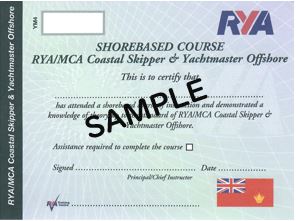
Call us for advice on 0238 218 2604
Course reviews.
Laura Anderson
Very enjoyable and informative
Impressively prompt and thorough feedback on all queries, tests, mock and real exams. Very high standards and you feel you have earned the Yachtmaster certificate.
Ciaran McIntyre
Comprehensive and well delivered
Excellent course materials and high quality delivery. Very responsive and excellent instructor feedback
Andrew Harvey
Excellent Yachtmaster theory course - I’d definitely recommend it.
Does what it says on the tin and more. I was impressed how well the course managed to tackle teaching relatively complex skills in a logical and easy to understand way.
Oliver Fleming
Well put together course.
I found the Yachtmaster theory course to be really well structured and covered all of the syllabus in great detail. I was impressed by how well the course managed to tackle teaching relatively complex skills in a logical and easy to understand way.


Combined - RYA Day Skipper & Yachtmaster to fast track your theory learning
RYA Coastal Skipper / Yachtmaster Offshore Shorebased
Coastal skipper / yachtmaster offshore shorebased.
Advanced training for more experienced skippers building on the RYA Day Skipper qualification. This course equips you to navigate safely on coastal and offshore passages.
About the course
The Coastal Skipper / Yachtmaster Offshore Shorebased course covers all of the theory knowledge to the standard required for the Yachtmaster Coastal and Yachtmaster Offshore practical exams, concentrating on advanced navigation and meteorology skills.
The course includes:
- position fixing
- course shaping and plotting
- tidal knowledge
- use of almanacs and admiralty publications
- electronic position finding equipment
- taking and interpreting forecasts
- plotting weather systems
- weather predictions using a barometer and by observation
- collision regulations
- customs and excise regulations for cruising abroad
Course syllabus
- Understand dead reckoning and estimated position
- Understand satellite-derived position
- Use of waypoints
- Radar fixes
- Techniques of visual fixing
- Understand fixes using a mixture of position lines
- Relative accuracy of different methods of position lines
- Understand areas of uncertainty
The magnetic compass
- Allowance for variation
- Understand change of variation with tie and position
- Understand causes of deviation
- Swing for deviation (but not correction)
- Allowance for deviation
- Different types of compass
- Causes of tides – Springs and Neaps
- Tide tables – sources
- Tidal levels and datum
- Standard and secondary ports
- Tidal anomalies
Tidal streams
- Sources of tidal information
- Tidal stream information in sailing directions and yachtsmen’s Almanacs
- Allowance for tidal stream in computing a course to steer
- Tide rips, overfalls and races
- Tidal observation buoys, beacons etc
- IALA system buoyage in Region A
- Limitations of buoys as navigational aids
- Understand characteristics
- Ranges – visual, luminous and nominal
- Rising and dipping distances
- Light lists
- Harbour regulations and control signals
- Methods of pre-planning
- Clearing lines
- Use of soundings
- Transits and leading lines
GPS and chart plotters
- Principles of operation and limitations of use
- Raster and vector charts
- Understand datum
- Importance of confirmation of position by an independent source and keeping a separate record of position
- Importance of paper charts
Echo sounders
Logs (speed and distance measuring).
- Principles of operation and limitation of use
- Importance of log as yachts official document
- Layout of log, hourly and occasional entries
Meteorology
- Understand basic terms, the Beaufort scale
- Cloud types
- Weather patterns associated with pressure and frontal systems
- Sources of weather forecasts
- Ability to interpret a shipping forecast, weatherfax and weather satellite information
- Land and sea breezes
- Use of a barometer as a forecasting aid
Rules of the road
- A sound knowledge of the International Regulations for Preventing Collisions at Sea, except Annexes 1 and 3
Safety at sea
- Personal safety, use of life-jackets, safety harnesses and lifelines
- Fire prevention and fire fighting
- Distress signals
- Coastguard and Boat Safety Scheme
- Preparation for heavy weather
- Life-rafts and helicopter rescue
- Understanding of capabilities of vessel and basic knowledge of stability
Navigation in restricted visibility
- Precautions to be taken in fog
- Limitations to safe navigation imposed by fog
- Navigation strategy in poor visibility
Passage planning
- Preparation of charts and notebook for route planning and making, and use at sea
- Custom regulations as they apply to yachts
- Routine navigating in coastal waters
- Strategy for course laying
- Use of waypoints and routes
- Use of weather forecast information for passage planning strategy
- Sources of local and national regulations
Marine environment
- Responsibility to minimise pollution and protect the marine environment
Prerequisites
Successful completion of RYA Day Skipper Shorebased course or a level of Navigational knowledge up to RYA Day Skipper level (Please assess your level of knowledge against the RYA Day Skipper Shorebased course syllabus).
How to Book
To book this course, register your interest below or Book Online By Clicking Here
Dates and pricing
Register your interest.
- First name *
- Last name *
- How did you hear about UKSA? * –None– Cowes Harbour Handbook Event Facebook General Knowledge Google Ads Instagram Outdoor collateral Press Referral RYA Dinghy Show School trip Solent Handbook & Directory Southampton Boat Show The British Boat Owners Directory Website
- General notes
- Opt-in to receive course information and relevant offers
- Accept Privacy Policy and Terms and Conditions .
- Name This field is for validation purposes and should be left unchanged.
Need help finding the right course for you?
Speak to an advisor on +44 (0)1983 203001 or email us
- Where Do I Start ?
- RYA Essential Navigation & Seamanship
RYA Day Skipper
- RYA Coastal Yachtmaster
RYA Yachtmaster Ocean
- Fastrack To RYA Coastal Yachtmaster
- RYA CEVNI Test
- Navathome Basic Training
- Navathome Diesel Engine Course
- Navathome ICC Theory Course
- Upgrade From Navathome ICC to RYA Day Skipper
- Navathome.com Mobile Phone App
- Book A Course
- Vouchers & Gifts
- Extend Your Course
- Ways To Pay
- Other Payments

Theory Course
Rya day skipper online training, get instant access £275.
Revise and retry until you pass
- Free Navathome Mobile App
- Includes Navigation Plotter & Dividers
- Free Diesel Engine Course worth £95
- Fully Animated & Interactive Lessons
- Multi Device Support
- Study At Your Own Pace
- Proven Pass Rate
- No Classroom Pressure
- MCA & RYA recognised
- Lifetime Access To Revision Material
- 6 Months Access - Extra 6 Months For £30
- Interactive Online Mini Radar Simulator
Navigate With Confidence
Gain the knowledge and skills necessary to navigate safely in familiar waters by day and learn how to apply the collision regulations and recognise lights at night. The comprehensive syllabus covers fundamental seamanship, navigation techniques, understanding tides, collision regulations, electronic navigation tools, weather interpretation, buoyage systems, and crucial safety practices.
Is this course right for me?
The Day Skipper Theory Course is suitable for a wide range of individuals who have an interest in sailing and want to enhance their skills and knowledge. It is perfect for complete beginners, seeking to gain navigational skills, and for seasoned sailors seeking to enhance their knowledge with formal tuition prior to completing the RYA Day Skipper practical course.
This course is suitable for commercial endorsement by having your assessment invigilated.
Completing the course typically takes around 40 hours of dedicated study. To assess your understanding, there are quizzes and exercises to help you gain a better understanding of each module. A final assessment is completed at the end of the course, consisting of two parts, of approximately 1.5 hours each - which are completed consecutively.
Upon successful completion, this course awards the RYA/MCA Day Skipper Shorebased theory certificate.
Not convinced?
Over 2,500 reviews on TrustPilot
‘What sets the course apart is the responsiveness of the support team should you have any questions.’ ‘All in all a super convenient and very efficient way to pass the RYA theory examinations.’
RYA DAY SKIPPER Course SYLLABUS
Nautical Fundamentals:
- Introduction to seamanship and boat terminology.
- Essential knots and techniques for berthing alongside.
- Preparing the boat for sea and basic boating manoeuvres.
Navigation Essentials:
- Chart reading and understanding depth contours.
- Plotting courses; considering tidal set and drift.
- Position fixing using different methods and accounting for tidal factors.
Tidal Streams and Passage Planning:
- Utilising tidal diamond tables and stream atlases.
- Plotting courses and estimating position using tidal data.
- Introduction to short daytime passage planning with waypoints and visual aids.
Tidal Heights and Calculations:
- Determining tidal heights for safe navigation.
- Applying tidal height tables and accounting for spring and neap tides.
- Basic secondary port calculations and time differences.
Collision Regulations and Lights:
- Understanding collision avoidance rules.
- Recognising vessel types from their lights.
- Identifying vessels by day shapes and using appropriate signals.
Electronic Navigation:
- Practical usage of chart plotters and electronic instruments
- Incorporating depth and wind data into navigation decisions
Weather and Forecasting:
- Causes of weather systems and their impact on sailing.
- Reading and interpreting weather forecasts and charts.
- Accessing reliable weather information sources.
Buoyage and Navigation Marks:
- Recognising buoys based on their characteristics.
- Understanding buoyage systems and their significance.
Safety at Sea:
- Essential safety practices and equipment onboard.
- Handling life rafts, life jackets, and flares.
- Mayday calls and communication during emergency situations.
CHOOSE YOUR COURSE
All courses are completed online, study at your own pace, from anywhere in the world.
RYA Essential navigation
No Experience Necessary Learn Basic Navigation & Seamanship
RYA Coastal Skipper / Yachtmaster
Day Skipper Theory Needed Enhance Your Knowledge of Navigation & Passage Planning
No Qualification Necessary Complete Day Skipper and Coastal YM in one course.
Fastrack to RYA Coastal YM
Frequently asked questions.
Our goal is to assist you by addressing common questions and offering valuable information about our courses and services. If you’re unable to find the specific answer you’re seeking, we encourage you to reach out to our dedicated team. We are always ready to provide further assistance and support.
NEED TO CONTACT US?
- RYA Day Skipper Practical
- RYA Courses
Practical Courses
5 day live aboard (some dates over long weekends and school holidays) Starts at 9.00am on day one and finishes 4.30pm on the final day

On this course you will learn practical skippering techniques. Completion of a Day Skipper Theory course beforehand will greatly enhance the value of this practical course.
Previous experience necessary: The RYA recommends the following experience as a minimum – 5 days sailing, 100 miles, 4 night hours plus knowledge up to Day Skipper Theory standard.
Each person is given the opportunity to skipper the yacht on short passages with a debrief session. During the course, you will be given the opportunity to practice your boat handling in a variety of mooring situations, and whilst at sea your instructor will cover subjects such as watch keeping, deck work, sail trim and how to cope in emergency situations.
A skipper is totally responsible for the management of a yacht, so the course also includes meteorology, basic engine checks, passage planning, preparing the yacht for sea, and rules of the road. Night sailing is also undertaken to practice pilotage in the dark.
By the end of this course the successful Day Skipper will be able to undertake short coastal passages by day. Successful completion of this course means that you can charter a yacht worldwide with confidence.
Knowledge of boat systems
Boat handling
Basic coastal navigation
Collision Regulations
Radio Operation
Operating under power
Meteorology
What do I bring? Wear clothes suitable for the day and rubber soled shoes, preferably with a white or light coloured sole. A cap, sunglasses, bottle of water and sun screen are also a good idea. You will also need a change of clothes, toilet kit, sleeping bag and any special medicine you may require packed in a flexible soft bag. We provide you with wet weather gear (with the exception of boots) if required.
How long is the course? 5 days live aboard.
What about meals? Most meals are provided (except 2 meals ashore – dinner at pub or restaurant). If you have special dietary needs, please be sure to indicate this in advance when you register for the course.
RYA logbook and certificate presented upon successful completion.
- Course Diagram
- Introductory Course
- Intermediate Course
- Passage Course
- RYA Competent Crew
- RYA Coastal Skipper Practical
- Yachtmaster – Preparation for exam
- Private tuition on your boat
- Prepare to Charter
- My View My View
- Following Following
- Saved Saved
Former Australia skipper Hooper dropped from sevens squad
- Medium Text
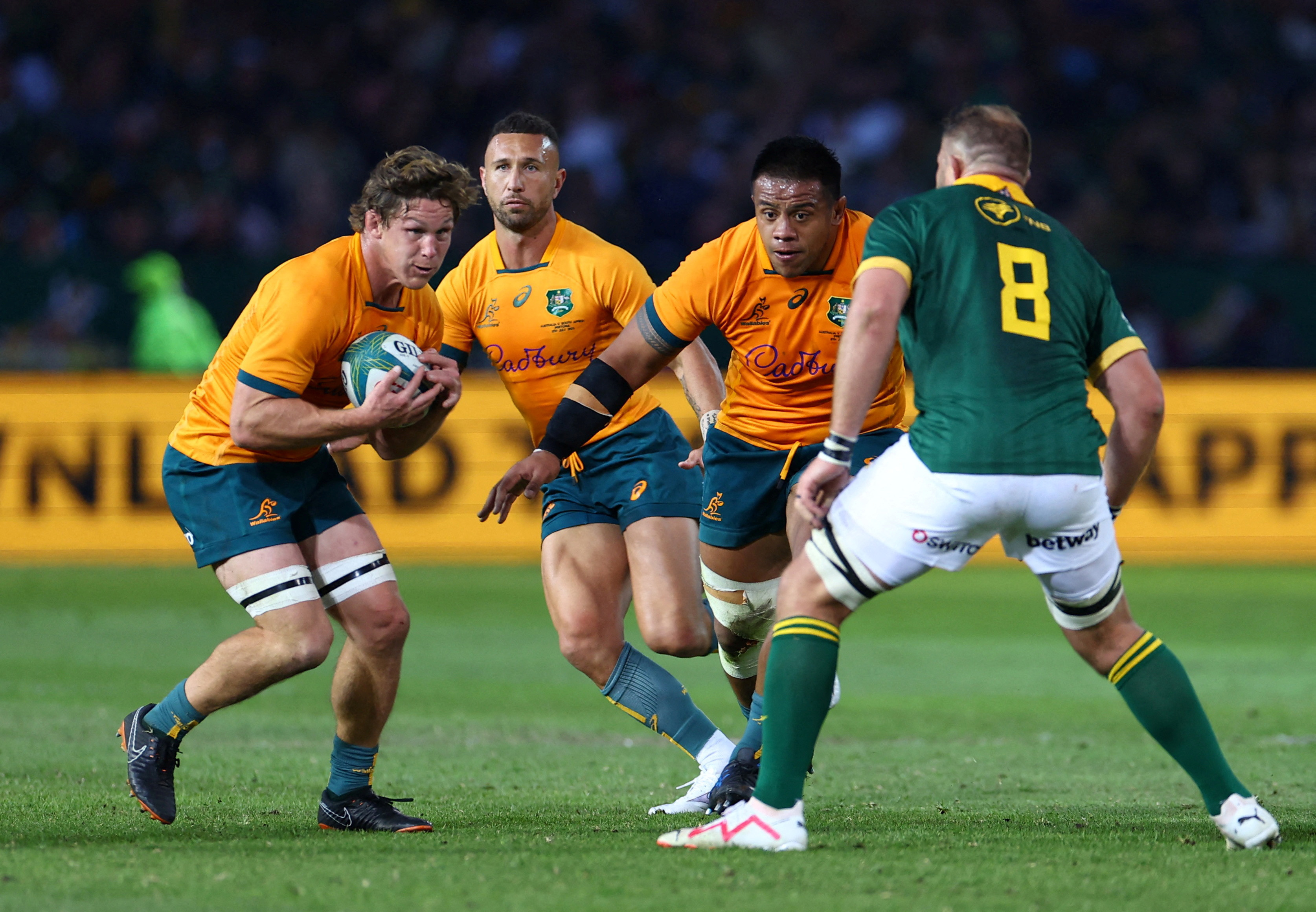
Sign up here.
Reporting by Ian Ransom in Melbourne; Editing by Michael Perry
Our Standards: The Thomson Reuters Trust Principles. New Tab , opens new tab

Sports Chevron
Minnesota Twins first baseman Alex Kirilloff grew tired of the questions.

The Baltimore Orioles wouldn't mind a normal routine, but they've shown the ability to adapt.

- Personal Finance
- Today's Paper
- Partner Content
- Entertainment
- Social Viral
- Pro Kabaddi League
SRH vs RR Highlights, IPL 2024 Qualifier 2: Abhishek, Shahbaz and Klaasen take Hyderabad to final
Ipl 2024 highlights, qualifier 2 srh vs rr: abhishek sharma took two wickets while shahbaz ahmed took three as part-timers helped restrict rajastthan to 139 and win the game by 36 runs for hyderabad.
SRH vs RR LIVE SCORE UPDATES, IPL 2024 Qualifier 2: Check out Rajasthan Royals full scorecard here
Srh vs rr live score updates, ipl 2024 qualifier 2: hyderabad win by 36 runs, reach finals, srh vs rr live score updates, ipl 2024 qualifier 2: fifty for jurel, srh vs rr live score updates, ipl 2024 qualifier 2: 52 needed off 12 to win, srh vs rr live score updates, ipl 2024 qualifier 2: natarajan gets powell, srh vs rr live score updates, ipl 2024 qualifier 2: jurel hit on the throat, srh vs rr live score updates, ipl 2024 qualifier 2: just 10 off the over after first ball six, srh vs rr live score updates, ipl 2024 qualifier 2: jurel brilliant, srh vs rr live score updates, ipl 2024 qualifier 2: jurel doing well, srh vs rr live score updates, ipl 2024 qualifier 2: abhishek sharma gets his second, hetmyer out, srh vs rr live score updates, ipl 2024 qualifier 2: six from jurel, srh vs rr live score updates, ipl 2024 qualifier 2: shahbaz ahmed with double-wicket over, srh vs rr live score updates, ipl 2024 qualifier 2: just six from the over, srh vs rr live score updates, ipl 2024 qualifier 2: just three from the over.
Don't miss the most important news and views of the day. Get them on our Telegram channel
First Published: May 24 2024 | 5:03 PM IST
Explore News
- Suzlon Energy Share Price Adani Enterprises Share Price Adani Power Share Price IRFC Share Price Tata Motors Share Price Tata Steel Share Price Yes Bank Share Price Infosys Share Price SBI Share Price Tata Power Share Price
- Latest News Company News Market News India News Politics News Cricket News Personal Finance Technology News World News Industry News Education News Opinion Shows Economy News Lifestyle News Health News
- Today's Paper About Us T&C Privacy Policy Cookie Policy Disclaimer Investor Communication GST registration number List Compliance Contact Us Advertise with Us Sitemap Subscribe Careers BS Apps
- Budget 2024 Lok Sabha Election 2024 IPL 2024 Pro Kabaddi League IPL Points Table 2024 ICC T20 World Cup 2024 ICC T20 World Cup 2024 Schedule

- Search forums
- Practical Boat Owner's Reader to Reader
Coastal skipper vs Yachtmaster?
- Thread starter Carling
- Start date 20 Sep 2007
- 20 Sep 2007
Is there any point in doing CS before YM? They both appear to be taught at the same time, is there a difference other than the criteria to start the course?
Well-known member
An instructor of mine when asked the same question said:- A CS is a consolation prize for a (only just) failed YM.
Richard10002
The impression I got was that Coastal Skipper covers more or less the same ground, but you have to be that bit better to get the YM. The other impression I got was that the standard for day Skipper course completion is not very high. I guess if you think you are comfortably going to get CS, go for YM, and make it a bit more of a challenge.
KenMcCulloch
[ QUOTE ] An instructor of mine when asked the same question said:- A CS is a consolation prize for a (only just) failed YM. [/ QUOTE ] I think that's probably bollox, the experience requirements for CS are quite a bit less but the expectations in terms of basic skills are pretty similar. There are some things you don't have to do for CS most notably blind nav (I assume that's still part of the exam) but for example if you can't recover an MoB promptly you won't pass at either level. I would say it depends why you want to do it. If it's just for the satisfaction of improving your skills then do both; the CS exam should be a really positive learning experience that will help you pass your YM a year or two later. Don't for a moment believe that passing at either level makes you invincible though.
Depends whether you are talking about theory or practical. Shore-based theory course is the same for both. I went for CS rather than YM practical because I did not have the sea-miles and qualifying passages for the latter. The boat I was on for the course and the exam had both CS and YM candidates and more seemed to be expected of, and delivered by, the YM. We all passed. Alan
My (personal) opinion here is that for the theory - go for YM. It covers pretty much the same as CS and then some more on top. In my experience if you are struggling with some 'assumed' knowledge that you would have got had you done CS then the instructor will help you. For the practical - thats up to you. I did the theory to learn the lights / col regs / chart work etc (by going to night school it forces you to learn it rather than just buying the text book to read 'when you have time'!). By the time I had clocked up the miles for the practical I didn't see the advantage to taking the exam - it was just a piece of paper to prove what I already could do - I didn't feel I would gain by doing it. Again, very personal opinion here - I am not doubting the YM practical is a great exam and highly regarded. Jonny [Ducks and runs for cover]
[quoteThere are some things you don't have to do for CS most notably blind nav (I assume that's still part of the exam) [/ QUOTE ] What exactly is blind nav.? Not sure if I did it or not, (June '07).
Active member
blind nav is navigating the vessel without visual reference and without use of gps and presumably radar. A hint - look for a suitable depth contour and use that combined with decent EPs worked out from tide and leeway, and it should be a dodle.
"My (personal) opinion here is that for the theory - go for YM. It covers pretty much the same as CS and then some more on top" Rubbish, its exactly the same course!
I agree with many of the other comments - you need to think what want out of it. My opinion is get on the water and put the theory into practice. In my experience the major difference for the YM to the CS is exactly what it is intended for i.e. preparing and undertaking longer passages that maybe are out of sight of land etc.
Are you sure - I thought the YM did more detail on weather charts etc? It may be different now as 9 years since I did mine. Sorry if its changed Jonny
capnsensible
Get yer logbooks out men. RYA publication G15 04 will do. The Coastal Skipper has the knowledge to skipper a yacht on coastal cruises but does not necessarily have the experience needed to undertake longer pasages. The Yachtmaster Offshore is competent toskipper a cruising yacht on any passage during which the yacht is no more than 150 miles from harbour. Thats the standard you will be examined to and why the qualifying miles and passages are upped for Offshore candidates. Don't forget your VHF and First Aid training proof!! Hope this helps.
As far as I know the CS/YM theory has always been combined. "An advanced course ideal for candidates for the Coastal Skipper practical course and Yachtmaster® Offshore exam. As well as having some provision for revising the Day Skipper shorebased course it covers more advanced skills in offshore and coastal navigation by day and night, pilotage and meteorology." There is precious little time for revising the Day Skipper shorebased, and I would add a lot more time on 'passage planning' and 'passage making'. Plus the 'Secondary Ports'!
My apologies then - I thought they were seperate and the YM had a larger syllabus (Probably getting confused with CS and DS - been a long day!!). Incidentally - I think the 'revising DS topics' depends on your course / tutor. The course I took only had 5 people on and the tutor was very willing to spend an extra half hour after the classes to help people and set extra homework to help them out - very useful. Jonny
[ QUOTE ] blind nav is navigating the vessel without visual reference and without use of gps and presumably radar. A hint - look for a suitable depth contour and use that combined with decent EPs worked out from tide and leeway, and it should be a dodle. [/ QUOTE ] Didnt do blind nav during the exam, but might have discussed it during the day... it was certainly mentioned by the instructor during the prep. week.
Comes under the heading 'Navigation and General Conduct in restricted visibility'. Not always tested during exams but should be thoroghly practised in coastal practical course and exam preparation time. '
- 21 Sep 2007
IMHO it depends on level of your experience AS A SKIPPER (rather than just mileage). If relatively inexperienced then I would say the courses are generally excellent for learning/experience building and therefore do CS then later with more experience go for YM. Good luck!
I have been fairly disdainful of the RYA training system. I learnt to sail hundreds of years ago in the 60's when masts were still wood and there were new things called "terylene" sails, and spent most of my life sailing dinghies and small cats with a few forays into larger boats crewing and chartering. Having bought a cruiser in 2003 I thought this year I would dip my toe in the RYA pool, and decided to do a practical first to assess my level. Went with East Anglia Sea School who were very flexible and said they would fit me to the appropriate qualification level. The mains thing for me was how good the week was. It was a mixed experience crew, one YM candidate, me and two DS candidates and the joint learning environment was brilliant. The areas where (not surprisingly) I was fine were boat handling, sail handling and trimming ( taught the YM a thing or two!) and practical navigation. The areas I need to improve (in my opinion) are the "book learning" stuff like lights and the more esoteric col regs. It ahs enthused me to want to do the theory stuff now and that is this winter's "project". Do I want to be a YM? Not sure. The pre-reqs will take a while to build up, but at least I now know my benchmark.
When I did the Yachtmaster theory course it was different than the Coastal theory course and cost more, have things changed?
I am one of the seemingly rare breed who has done both! I did Coastal skipper when I was 18, and I don't think I would have been capable of passing YM at that point. CS was about the level I was at, and it enabled me to do the things I wanted to do, especially regarding chartering yachts to take uni dinghy sailors yachting. Then once I'd finished uni I decided to "upgrade" to a YM. And I think the experience of sailing to an exam before really helped me, especially in terms of not panicking at the first small mistake.
Other threads that may be of interest
Members online
- Fr J Hackett
- Slipstream 34
- KompetentKrew
- afterpegassus
- garymalmgren
- agroundagain
- Hot Property
- john_morris_uk
- John_Silver
- Achillesheel
- Chiara’s slave
Share this page

IMAGES
VIDEO
COMMENTS
The main difference of Day Skipper vs Coastal Skipper and the two levels is the level of experience and knowledge you qualify with, plus the important aspect we just mentioned - being able to skipper at night vs day. Day Skipper is the lower level sailing qualification and is designed for aspiring skippers with some yachting experience plus ...
The Day Skipper or Coastal Skipper certs will get you an ICC if required. There is no formal RYA Yachtmaster practical course, but a number of schools do a Yachtmaster Prep week, prior to a Yachtmaster exam. A 1 week coastal skipper course may well be an appropriate practical course for you.
Visit site. BlowingOldBoots said: You should do the Day Skipper Shore Based Course, then the Day Skipper Course, followed by the Coastal Skipper Yachtmaster Offshore Shore Based Course. For example do this over a year (if you have the time and funds) winter, summer, winter. In between go sailing and practice your skills.
30 days, 2 days as skipper, 800 miles, 12 night hours (if you hold the Coastal Skipper course certificate this is reduced to 20 days, 2 days as skipper, 400 miles, 12 night hours). Half the qualifying sea time must be conducted in tidal waters. Last edited: 17 Sep 2014. 17 Sep 2014. #4.
The IYT Day Skipper is slightly more limited than the RYA one. It limits the boat you can skipper to 10m but it is slightly shorter. It is a 3 to 4 day course that gives a good introduction to planning a safe sail and basic boat checks. Otherwise, the two are quite similar. The International Bareboat Skipper syllabus is quite similar to the ...
Hopefully this blog has answered Everything You Need To Know about RYA Yachtmaster Theory. If you have any further questions or you are interested in taking RYA Yachtmaster Theory click here to see availability and dates. You can also E-mail [email protected] or call 0203 006 3717.
Visit our helpful RYA Advanced and Yachtmaster Qualifying mileage page for more information. The route to Yachtmaster has several stepping stones, most students work through Day Skipper Shorebased and Day Skipper Practical and then Coastal Skipper, however if you already have relevant experience and skills you can consider skipping these courses.
The Day Skipper qualification confirms that the successful candidate has the knowledge needed to skipper a yacht on shorter, ... Coastal Skipper and Yachtmaster. While the qualification is primarily for the United Kingdom, it is widely recognised internationally. The course has two elements, a theory and practical. Candidates must complete the ...
The following pathway is a guide to using the RYA courses to take your sailing skills beyond the basic level of a Day Skipper. Again the steps to Yachtmaster can be a bit confusing so we'll try and clarify things for you. RYA 2-day Improver Keelboat Courses 1. Level 3 - Better Sailing (a flexible course which can be repeated to suit your ...
In recent years, the old Coastal Skipper has been superseded by the new Yachtmaster Coastal certificate. The qualifying mileage for this MCA-recognised qualification is 800 miles, with passage and night-hour requirements being regarded as fairly relaxed in comparison with Yachtmaster Offshore, which keeps its 2,500-mile entry level.
Proper understanding of the skipper's role is vital for ticking the box of another requirement - 5 days on board acting as a skipper. A day in this case is a period of 8 consecutive hours, and the majority of them should be at sea. In every 24 hours, Yachtmaster candidate can have only one qualifying day onboard.
Unlike the RYA Day Skipper qualification, all three qualifications are gained through external examination. The holder of a Yachtmaster Coastal qualification should be competent to skipper a yacht of up to 24 metres LOA in waters up to 20 miles from a safe haven. A Yachtmaster Offshore is qualified to skipper a vessel of the same size up to 150 ...
Ideal for candidates for the Coastal Skipper practical course & Yachmaster Offshore exam. Some revision of the Day Skipper shorebased course plus more advanced skills in offshore & coastal navigation by day & night, pilotage & meteorology.
The Day Skipper Theory course was… " The Day Skipper Theory course was fantastic. Really clear explanations and the videos meant you got more than a classroom experience. There was also someone available via online chat to help immediately if I had any questions. They also got my mock results back to me within 30 minutes of submitting it!
The practical instruction is 5 days on the boat with an instructor and some other students. For Coastal Skipper there is no comprehensive test on the boat the instructor issues you a pass/fail. For Yachtmaster there is a 48 hour (continuous) comprehensive practical exam by a RYA examiner on the boat.
If you want a book to brush up on trad nav and suchlike I would definitely suggest the Yachtmaster one rather than Complete Day Skipper. That said, the prior knowledge needed for Day Skipper practical is not vast; given your sailing history I'd expect you're already there. Finally, a full Day Skipper course is not needed for an ICC.
RYA Coastal Skipper/Yachtmaster™ theory is a more advanced course that builds on the knowledge gained at the RYA Day Skipper Theory level. Its aim is to take your theory knowledge to the standard required for the Yachtmaster™ Coastal and Yachtmaster™ Offshore practical course. This course is open to anyone who has already completed Day ...
The RYA Yachtmaster online theory course takes your theory knowledge to the standard required for the Yachtmaster Coastal and Yachtmaster Offshore practical exams.. This course advances your skills as a skipper of a yacht or motor boat, with an emphasis on navigation and passage planning for more complex coastal or offshore passages by day and night
Advanced training for more experienced skippers building on the RYA Day Skipper qualification. This course equips you to navigate safely on coastal and offshore passages. ... RYA Coastal Skipper / Yachtmaster Shorebased: 13/06/2024: 19/06/2024: Full: Full: RYA Coastal Skipper / Yachtmaster Shorebased: 10/08/2024: 16/08/2024: £500: £680:
RYA DAY SKIPPERONLINE TRAINING. RYA DAY SKIPPER. ONLINE TRAINING. Get Instant Access £275. Revise and retry until you pass. Free Navathome Mobile App. Includes Navigation Plotter & Dividers. Free Diesel Engine Course worth £95. Fully Animated & Interactive Lessons.
Price - $ 1850 per person. 5 day live aboard (some dates over long weekends and school holidays) Starts at 9.00am on day one and finishes 4.30pm on the final day. Check Dates and Availability. Book Now.
India vs Pakistan: June 9, 2024: 8:00 PM: Nassau County International Cricket Stadium: Pakistan vs Canada: June 11, 2024: 8:00 PM: Nassau County International Cricket Stadium: Pakistan vs Ireland ...
Coastal Skipper is essentially a beefed up version of Day Skipper. Yachtmaster Coastal is a dumbed down version of YM Offshore. YM Coastal candidates would normally attend a prep week with a Yachtmaster Instructor (YMI), who would make a recommendation, usually just after half way through the week, as to whether or not the candidate should go ...
MELBOURNE, May 24 (Reuters) - Former Wallabies captain Michael Hooper has been omitted from Australia's rugby sevens squad for next week's world series final in Madrid in a setback to his Olympic bid.
IPL 2024 highlights, Qualifier 2 SRH vs RR: Abhishek Sharma took two wickets while Shahbaz Ahmed took three as part-timers helped restrict Rajastthan to 139 and win the game by 36 runs for Hyderabad ... Earlier RR skipper Sanju Samson won the toss and decided to bowl first ... Don't miss the most important news and views of the day. Get them on ...
The Coastal Skipper has the knowledge to skipper a yacht on coastal cruises but does not necessarily have the experience needed to undertake longer pasages. The Yachtmaster Offshore is competent toskipper a cruising yacht on any passage during which the yacht is no more than 150 miles from harbour.